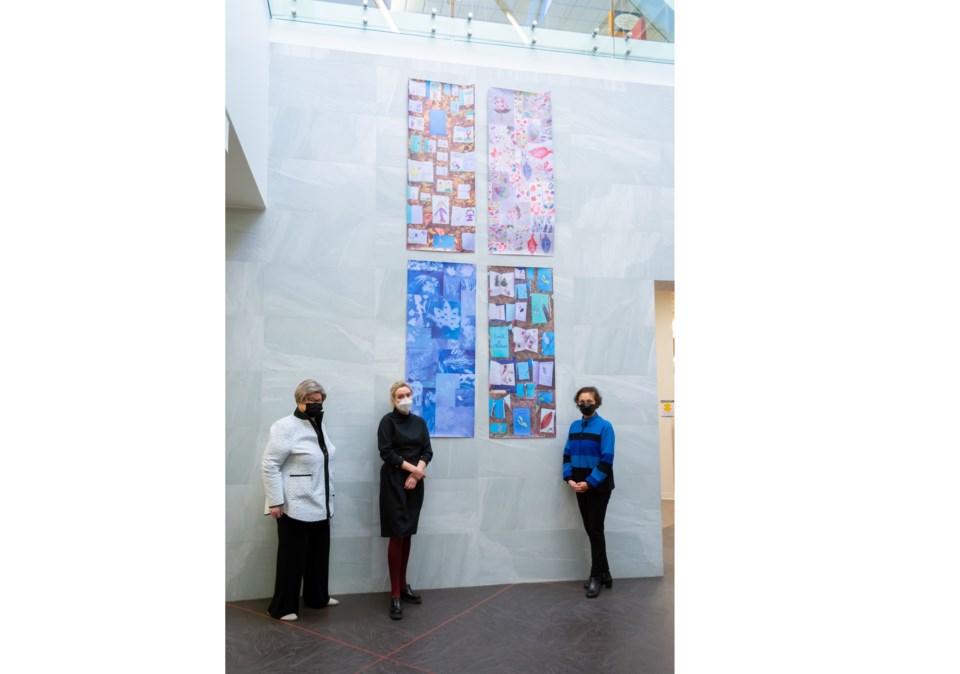Collaboration between Richmond residents and the city’s artist-in-resident, intertwining art and ecology, has resulted in a new creative installation at the Richmond Public Library.
Elements from artwork created last year by local community members at eight workshops make up the 12-by-six-foot “final legacy piece” that is now on display at the Richmond library’s Brighouse branch, explained Rachel Rozanski, Richmond’s sixth artist-in-residence.
The art installation titled “Exploring Ecology Through Place” is made up of four banners that represent what the surrounding environment means to these workshop participants, who used plants, leaves and other things they found in their neighbourhoods to express their sense of belonging, according to Rozanski.
One of the techniques used to create the banners was cyanotype, a process that uses the sun to create prints on paper using leaves and shapes found in nature.
The workshop attendees also collected and pressed plant samples to create a field book, and some of these were also used on the banners.
“I think it’s important to build connections with the place we’re in and also in the same way you would with a community of people,” said Rozanski.
“I think it’s just healthy to have an understanding of the place you live in, learn about its history, and connecting and caring about the environment.”
Rozanski hosted the outdoor workshops with the help of RPL and in partnership with the City of Richmond’s Public Art Program.
Rozanski told the Richmond News, being new to the city, exploring the environment and creating art alongside local residents was an exciting part of the workshop series.
“I brought components of my own artistic practice into this project, working with plants and ocean life, encouraging participants to explore their surroundings in ways they haven’t before,” she said.
“I think it was watching people look more closely at things that they’ve been just probably walking past all this time, or people that are new to the area and learning about it is what made it such an interesting experience overall.”



